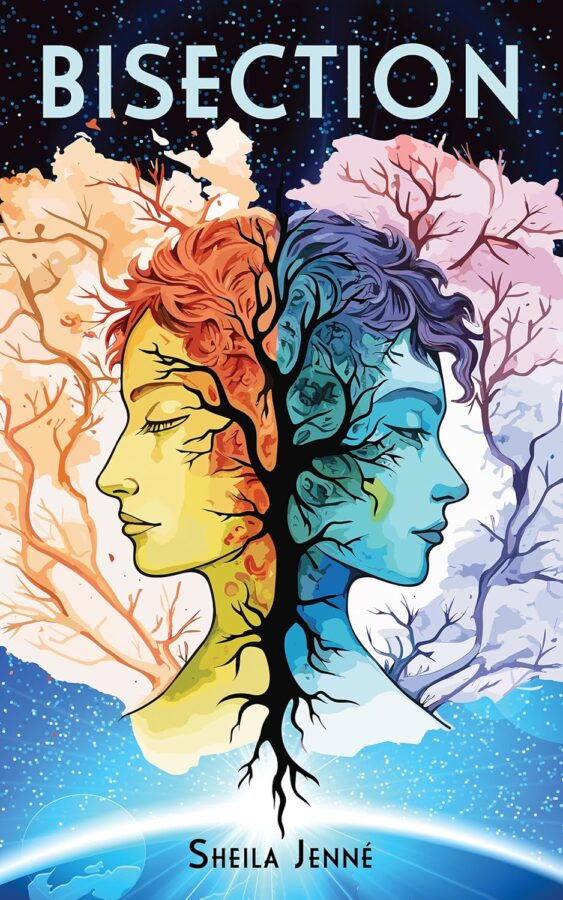Genre: Sci-Fi
Reviewer: Beáta
Get It On Amazon
About The Book
Tria and Resa have shared the same body since they were born. Like everyone on their home planet of Kinaru, their mind and body are divided down the middle: the logical right and the emotional left. Tria, the right, has a budding career as a biologist, while Resa dreams of more freedom than their home planet grants her.
When aliens land on Kinaru, Tria and Resa seize the opportunity to be the first of their people to travel to the stars. Karnath, the alien scientist assigned to study them, is convinced there is more to the Kinaru than meets the eye. But only days into the trip, crew members start turning up dead, and a mutiny redirects the ship toward a forbidden, war-torn planet—Earth.
To solve a conspiracy that threatens three planets, Tria must find out the truth of who her people really are, and Resa needs to finally tell Tria the dark secrets she’s been hiding all their lives.
The Review
I have already read and very positively reviewed Sheila Jenné’s Imperial Mars series. I can’t say enough how much I loved those books, and Jenné’s writing in general. So when I was offered her other book, Bisection, it was an easy choice.
I was not disappointed.
Bisection’s main characters are Tria and Resa, two members of a species where the left and right brain halves have developed into separate people. They share the same body, are telepathically linked, and have their brain functions divided between them. Tria, the right, is hyper rational, and only barely experiences emotions, while Resa, the left, is sensitive and artistic.
On their planet, the rights are in power. They control their bodies most of the time, and are taught to consider the lefts as somewhat lesser, whom they need to control for their own good. This world-view gets fundamentally questioned when Tria and Resa sneak aboard an alien spaceship. For the first time, they are exposed to beings who have access to their entire brains, and they even stumble upon a conspiracy that makes them question where their own species comes from.
Jenné’s strength is in building interesting sci-fi worlds, and then exploring the social realities of said worlds. Her Imperial Mars books are built on fairly human concepts: Capitalism vs feudalism, class struggles, etc. In Bisection, she goes much further, and as a consequence, her alien societies are much more alien (technically, the Imperial Mars books don’t even have aliens, just humans who grew up on different planets). The story talks a lot about relationships, about the right to chose them and the risks this brings, and about the things we lose if we let ourselves be controlled by only reason.
It is also about Tria learning to understand Resa better, Resa gaining more independence than she had back on their planet, and, of course, the mystery of what the inhabitants of Earth, not yet able to travel in space, have to do with the suspicious deaths on the spaceship, and with Tria’s species.
As I said, I really liked this book. A lot. The plot is interesting, the worldbuilding unique, it has something to say, and I also liked how much of a scientist every main character was.
As with Sheila Jenné’s other two books, I would highly recommend Bisection.
The Reviewer
Beáta Fülöp is an aspiring filmmaker and writer. She identifies as aromantic and asexual, and has an autistic Special Interest in the representation of minorities. One day, she will use this knowledge in her own stories. Until then, she is happy to sit here and give her opinion on other people’s hard work.


